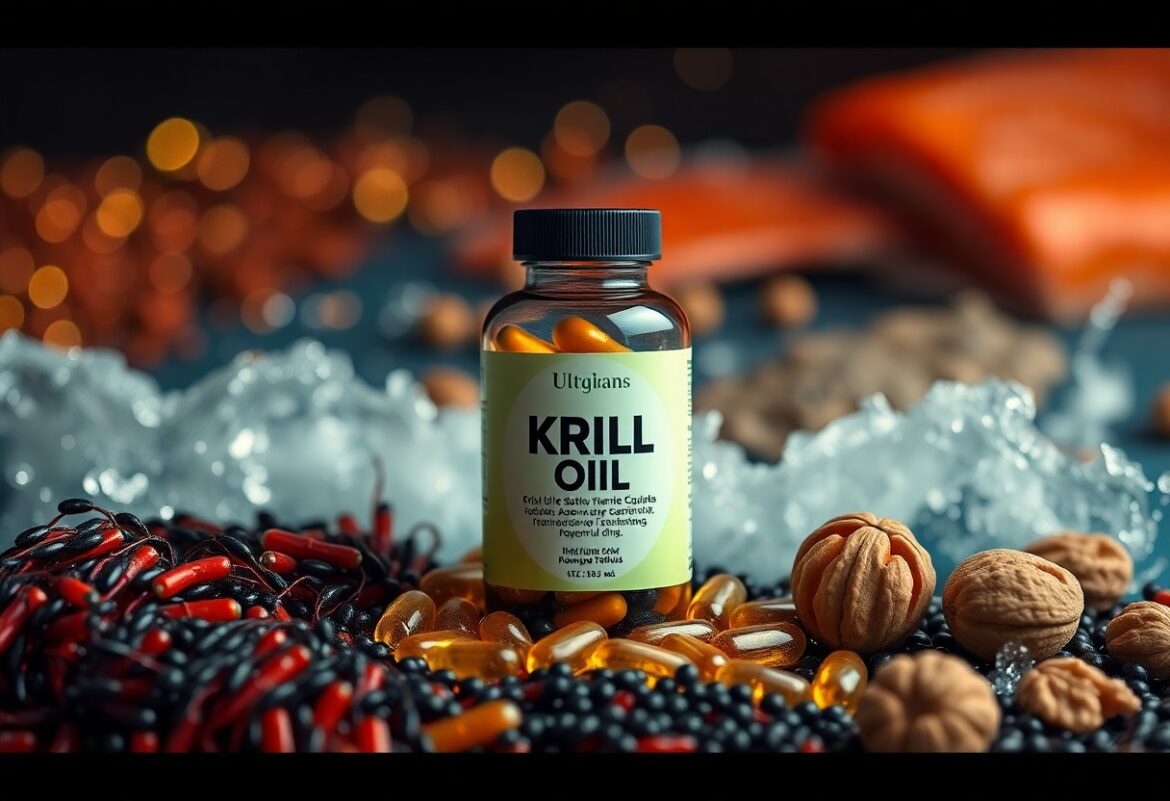There’s a growing conversation about the importance of omega-3 fatty acids in your diet, and if you’ve been looking for a solution to enhance your overall health, you may have come across krill oil. With the rising awareness of omega-3 deficiency, it’s important to understand whether krill oil is indeed the best option for you.
Krill oil is derived from tiny crustaceans called krill, primarily found in the icy waters of the Antarctic. This oil has gained popularity as a potent supplement packed with omega-3 fatty acids. More specifically, it contains EPA (eicosapentaenoic acid) and DHA (docosahexaenoic acid), two of the most beneficial forms of omega-3 important for your body. Unlike many other sources of omega-3, such as plant-based options, krill oil offers omega-3 in a phospholipid form, which studies suggest may enhance absorption in your body.
One of the outstanding features of krill oil is its potential antioxidant properties due to the presence of astaxanthin, a powerful antioxidant that gives krill its distinctive red color. This can help combat oxidative stress and support your immune system. Given the various health benefits associated with omega-3 fatty acids, krill oil has emerged as a strong contender to address issues related to heart, brain, and joint health.
Numerous studies suggest that omega-3 fatty acids can play a vital role in promoting cardiovascular health. They are known to help lower triglyceride levels and maintain blood pressure, both of which benefit your heart. Moreover, omega-3s influence the production of anti-inflammatory compounds that can soothe inflammation, making krill oil a suitable choice for those dealing with joint discomfort.
If you’re concerned about cognitive function, omega-3 fatty acids are important for the brain’s optimal performance. Regular consumption of omega-3s has been linked to improved mood conditions and a lower risk of cognitive decline. Krill oil emerges as a potential ally in enhancing brain health, offering you both immediate and long-term benefits.
While krill oil appears to be an effective option, it’s important to consider the necessary dosage and consult with your healthcare provider before starting any new supplements. Additionally, be aware of potential allergens, especially if you have a shellfish allergy. You will also want to ensure you are purchasing high-quality krill oil from a reputable source to reap the maximum benefits.
So, is krill oil the quintimportant elixir for omega-3 deficiency? For many, it can be a highly effective option, especially if you’re struggling to incorporate sufficient omega-3-rich foods into your diet, such as fatty fish or flaxseeds. By choosing krill oil as a part of your wellness routine, you may find yourself on the path to fulfilling your omega-3 needs while reaping the added benefits of its unique nutrient profile.
Ultimately, making an informed choice suited to your dietary preferences and health goals is important, ensuring you enjoy the robust health benefits that omega-3 fatty acids can provide.


